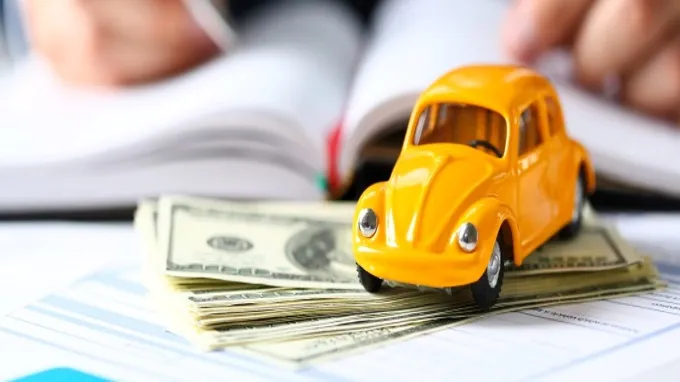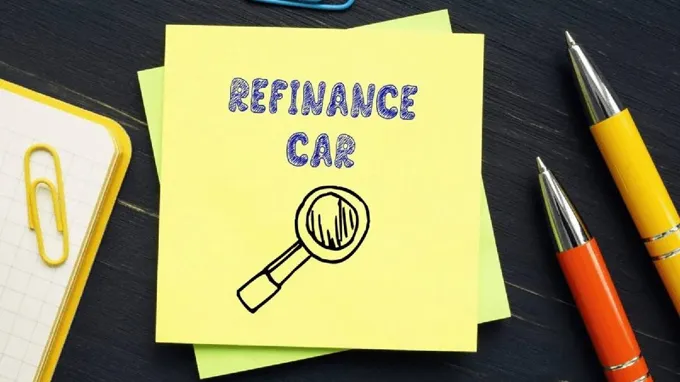If you’re in the middle of a lease term, you might be wondering if there’s a way to lower your monthly payments or get out of the lease altogether. Fortunately, refinancing your lease car might be an option worth exploring. Refinancing can provide you with a lower interest rate, reduce your monthly payment, and help you save on your overall lease cost.
But before you start the process, there are a few things you need to know. In this blog post, we’ll explain what refinancing a lease car entails, the benefits of refinancing, and the potential drawbacks, so you can make an informed decision.
Table of Contents
Understanding Lease Refinancing
If you’re wondering, “can you refinance a lease car?” – the answer is yes, it is possible. But just as with any financial decision, it’s important to weigh the pros and cons before making a decision. Lease refinancing involves taking out a new loan to pay off the remaining balance of your existing lease.
This may be a good option for those who need to lower their monthly payments or move from a high-interest rate to a lower one. However, it’s important to consider the fees associated with refinancing, such as early payoff penalties, as well as the potential for negative equity if the car is worth less than the remaining balance of the loan. As with any financial decision, it’s important to do your research and consult with a professional to determine if lease refinancing is the right choice for you.
Explaining lease refinancing and why it may be beneficial
Lease refinancing can be a beneficial way to lower your monthly lease payments or reduce the total cost over the lease’s life. When you refinance your lease, you’re essentially replacing your current lease agreement with a new one that has better terms. This could mean lower interest rates, fewer fees, or an extended term.
One benefit of lease refinancing is that it can help improve your cash flow, which can be useful if you want to free up funds to invest elsewhere. It can also help you avoid excess fees, especially if your original contract had hidden fees or penalties for early termination. Moreover, it can enable you to change some of the terms of your original lease, like the mileage allowance or the return deadline.
Refinancing your lease can be a great way to save money and improve your overall lease experience. So, if you’re considering lease refinancing, it’s important to research and compare various options before making a decision to ensure that it’s the right choice for you.

The difference between lease refinancing and lease buyouts
Lease refinancing is a great way to take advantage of lower interest rates and better terms than the original lease agreement. This process involves renegotiating the terms of the existing lease agreement to make it more favorable to the lessee. It entails working with the current lessor to modify the terms of the lease or securing new financing from a different lender.
One benefit of refinancing a lease is that it can lead to lower monthly payments, freeing up cash flow for other business expenses. Refinancing can also provide access to additional capital for business growth or help extend the lease term to match the useful life of the equipment. Additionally, lessees may benefit from improved lease terms, such as reduced interest rates or less stringent repayment terms.
By refinancing a lease, businesses can enhance their financial flexibility and position themselves for future growth opportunities.
Factors to Consider
If you’re currently leasing a car and considering refinancing, there are several factors to consider before making a decision. One of the main things to keep in mind is that refinancing a lease car isn’t the same as refinancing a traditional car loan. You’ll need to work directly with the leasing company and there may be fees involved.
It’s also important to consider your current credit score and financial situation. If your credit score has improved since starting the lease or you’re now in a better financial position, refinancing could potentially save you money on your monthly payments. However, if your credit score has decreased or you’re struggling financially, refinancing may not be the best option.
Ultimately, the decision to refinance a lease car should be based on your individual circumstances and goals.
Your credit score and how it impacts lease refinancing
Lease refinancing can be a great way to lower your monthly payments and save money in the long run. But, before you dive in headfirst, it’s essential to consider how your credit score could impact your ability to refinance. Your credit score plays a significant role in the refinancing process, as lenders use it as an indicator of your ability to repay the loan.
If you have a low credit score, you may find it challenging to qualify for a lease refinancing loan, or you may be offered a higher interest rate. On the other hand, if you have a high credit score, you may find that you qualify for lower interest rates, which means that you could save thousands of dollars over the life of the lease. So, before you start the refinancing process, make sure you check your credit score and take steps to improve it if necessary.
Current interest rates and how they affect lease refinancing
Leasing a car can provide convenience and flexibility, but it’s important to keep an eye on current interest rates if you’re considering refinancing. One factor to consider is the current state of the economy. If interest rates are low, you might be able to secure a lower rate when you refinance your lease, which could save you money in the long run.
Another factor to consider is your credit score. If your credit score has improved since you first leased your car, you may be eligible for a lower interest rate as well. It’s also important to consider the terms of your current lease, such as how much time is left on the lease and what fees you may incur if you decide to refinance.
Taking all of these factors into account can help you determine whether or not refinancing your lease is the right decision for you.
The remaining value of your lease and how it affects refinancing
When considering refinancing a car lease, one important factor to keep in mind is the remaining value of your lease. This is the amount of money that is still owed on your lease, and it can have a significant impact on your ability to refinance. If the remaining value is high, it may be difficult to find a lender who is willing to refinance your lease.
Additionally, if you are able to find a lender, the interest rate may be higher to compensate for the increased risk associated with the higher remaining value. On the other hand, if the remaining value is low, you may be able to secure a lower interest rate and save money over the life of your refinance. To determine the remaining value of your lease, you can request a payoff quote from your leasing company.
By considering the remaining value and other factors, such as your credit score and the length of the new lease, you can make an informed decision about whether refinancing your lease is the right choice for you.
How to Refinance Your Lease Car
If you’re wondering if you can refinance a lease car, the answer is yes, it’s possible. Refinancing a lease can help you reduce your monthly payments, lower your interest rate, or extend your lease period. However, not all lenders allow lease refinancing, so you need to check with your current leasing company or other lenders to see what options are available for you.
Keep in mind that refinancing a lease car can also come with fees, such as application and processing fees, so you need to consider the costs and benefits before making a decision. It’s essential to compare different offers from various lenders to find the best refinancing deal for your situation. In summary, if you want to save money on your lease car, refinancing may be a viable option, but you need to do your research and carefully review the terms and conditions before signing on any dotted lines.
Steps to take before refinancing your lease
If you’re considering refinancing your lease car, there are a few important steps you should take before making any decisions. First, you’ll need to check your credit score and make sure it’s in good standing. This will affect the interest rate you’re offered and the overall cost of refinancing.
Next, assess the value of your car compared to the remaining payments on your lease. If the car is worth more than what you owe, refinancing could be a good option. However, if you owe more than the car is worth, you may have to pay extra fees or find other ways to make up the difference.
Finally, research different lenders and their terms for refinancing leases. Make sure you understand all the costs and conditions before committing to a new deal. Remember, the key to successful refinancing is to do your research and make an informed decision.
Where to find companies that offer lease refinancing
If you’re looking for a way to lower your monthly car lease payments, refinancing your lease may be the solution you need. There are many companies that specialize in lease refinancing, and you can find them online or through your current leasing company. Some common lease refinancing companies include LeaseBusters, SwapALease, and Auto Approve.
These companies work by matching you with someone who is looking to take over the unexpired portion of your lease. They’ll then negotiate with your leasing company to extend the lease term and lower your payments. Keep in mind that refinancing your lease can sometimes come with fees, so be sure to read the fine print carefully before signing up.
Additionally, not all leasing companies allow lease transfers, so you’ll need to check with your current company before exploring this option. However, if the opportunity is available to you, refinancing your lease can be a great way to save money on your monthly payments and keep your current vehicle.
Benefits and Risks of Lease Refinancing
Can you refinance a lease car? Yes, refinancing a lease can be a viable option in certain situations. One of the benefits of refinancing is that it may enable you to reduce your monthly payments, lower your interest rate or even change the terms of your contract. This can help you save money in the long run and make your lease more affordable.
However, there are also risks associated with lease refinancing. One of the main risks is that you may extend your lease longer than necessary, which can lead to even more costs and fees down the road. Additionally, if you are not familiar with the terms of your lease agreement, you may not fully understand the consequences of refinancing.
It’s essential to carefully consider the benefits and risks of refinancing a lease car before making any decisions. Overall, refinancing a lease is possible, but it requires careful thought and consideration to make the right decision for your unique situation.
The potential benefits of refinancing your lease
If you’re looking for a way to reduce your monthly lease payments or lower your interest rate, refinancing your lease could be the solution you need. By negotiating a new lease agreement with better terms and conditions, you can save money and improve your financial situation. However, it’s important to understand the risks and potential downsides of lease refinancing before you make a decision.
Refinancing your lease may result in additional fees or charges, and you’ll need to consider the impact of extending your lease term or changing your mileage limit. On the other hand, the benefits of lease refinancing can include lower monthly payments, a reduced interest rate, or even the opportunity to upgrade to a newer or better vehicle. By weighing the potential benefits against the risks, you can make an informed decision about whether lease refinancing is the right choice for you and your budget.
The risks involved with lease refinancing
Lease refinancing can be a smart move for businesses looking to reduce their monthly payments or secure better terms. However, it’s essential to keep in mind that there are risks involved with this process as well. One of the primary risks is the possibility of a higher interest rate, which can result in higher overall costs over time.
Additionally, businesses that choose to refinance their leases may face penalties or fees for early termination, which can be substantial. Another risk to consider is the potential for longer repayment terms, which can result in more significant interest charges and overall costs. Before refinancing, businesses should carefully review their contracts, assess their financial situation, and consider all the potential risks and benefits involved.
By doing so, they can make an informed decision that will help them achieve their goals and save money in the long run.
Final Thoughts
If you’re wondering whether you can refinance a lease car, the answer is yes, you can. Refinancing a lease car involves taking a new loan to pay off your existing lease. This new loan will have different terms and interest rates, so it’s important to consider whether refinancing is worth it for you in the long run.
There are a few reasons why you would want to refinance a lease car, such as getting a lower interest rate, reducing your monthly payments, or changing the terms of your lease. Keep in mind that you will need to meet certain eligibility requirements such as having good credit and meeting the lender’s minimum income requirements. Refinancing a lease car may not be for everyone, but it’s definitely worth considering if you want to save money in the long run.
So if you’re looking to refinance your lease car, it’s important to do your research and find a lender that meets your specific needs.
Conclusion
In conclusion, the answer to whether you can refinance a lease car is an unequivocal yes. It’s like a facelift for your vehicle, allowing you to adjust your payments and terms to suit your changing needs. It’s a smart move that can save you money and help you stay on the road in style.
So, if you’re considering refinancing your lease, don’t hesitate to explore your options – you might just end up with a sleeker, more affordable ride. Who said leasing couldn’t be flexible?”
FAQs
What is car lease refinancing?
Car lease refinancing is the process of getting a new lease with better terms and conditions to replace the current lease.
Can you refinance a lease car early?
Yes, you can refinance a lease car early, but you may have to pay early termination fees and other charges.
How much can you save by refinancing a lease car?
The amount of savings you can get by refinancing a lease car depends on various factors such as interest rates, monthly payments, and lease terms. You can save hundreds or thousands of dollars over the life of the lease.
What are the benefits of lease refinancing?
The benefits of lease refinancing include lower monthly payments, reduced interest rates, flexible lease terms, and the ability to switch to a new car model.
What are the requirements for lease refinancing?
The requirements for lease refinancing may vary by lender and lease contract. Generally, you need to have a good credit score, sufficient income, and equity in the car.
How does the lease refinancing process work?
The lease refinancing process involves applying for a new lease with a different lender, negotiating the terms and conditions, paying off the existing lease, and signing a new lease agreement.
Is it worth refinancing a lease car?
Refinancing a lease car can be worth it if you can get better terms and conditions than your current lease. It can help you save money, reduce monthly payments, and get a better car model.



